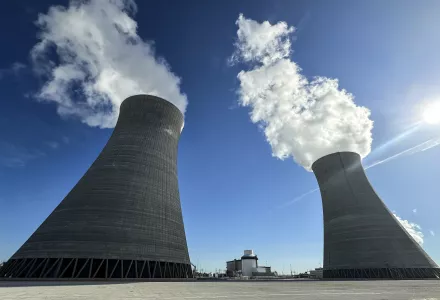
After decades of lagging behind in nuclear technology, Africa is beginning to turn the tide.
Once hampered by inadequate infrastructure, limited technical capacity, and the high financial costs associated with atomic energy, the continent is now witnessing a quiet revolution—driven by urgent energy needs and a changing climate agenda.
For years, nuclear energy was regarded as a distant dream for African nations, even as industrialized countries expanded their power grids with large-scale nuclear plants throughout the 20th century.
But now, as the pressures of decarbonization mount and energy demand soars across the continent, nuclear power is being revisited—not as an aspiration, but as a tangible development strategy.
The renewed enthusiasm is grounded in necessity.
With frequent power outages, widespread rural energy deficits, and mounting pressure on industrial zones, African governments are seeking stable, long-term solutions.
A growing number are now considering small modular reactors (SMRs) and microreactors (MRs), which offer flexible, scalable alternatives to traditional, large nuclear installations.
Their compact design, faster deployment times, and adaptability to diverse terrains are proving attractive to both local authorities and international investors.
These next-generation nuclear technologies are sparking global interest. Investors are increasingly betting on Africa’s underdeveloped yet rapidly growing energy markets.
For many, the nuclear sector represents not just a solution to power shortages, but a cornerstone for broader economic transformation—powering digital infrastructure, industrial development, and urban expansion.
Still, financing remains the central challenge.
The capital-intensive nature of nuclear projects, even smaller ones, demands long-term commitments and robust regulatory oversight.
To meet this need, stakeholders are looking toward hybrid public-private partnerships and cross-border collaborations.
The African Nuclear Energy Innovation Summit, recently convened in Kigali, underscored these trends.
The summit brought together governments, development banks, technical experts, and private sector representatives to forge alliances and chart a course for pilot projects.
Particular emphasis was placed on regional integration mechanisms like the African Continental Free Trade Area (AfCFTA), which could unlock new market efficiencies and standardize regulatory protocols.
Equally crucial is the human capital question. As momentum builds, experts warn against reliance on foreign expertise.
The summit highlighted the need for educational reform, with proposals to establish regional centres of excellence and boost the mobility of nuclear science students and researchers.
Stakeholders agreed that sustainable success will require a coherent, long-term policy for technical education and training.
As Africa steps into the nuclear age, its challenge will not be merely technological—it will be about building trust, skills, and structures that can harness atomic power safely and equitably.



